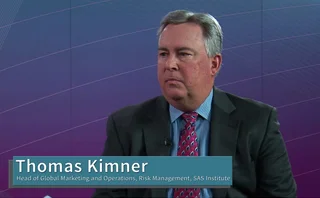
Charges recommended for securities settlement failures
US Treasuries dealers should start imposing penalty charges on counterparties that fail to deliver securities on time, an industry group has recommended.
The Treasury Market Practices Group (TMPG), a group of market professionals working in the US Treasury market and sponsored by the Federal Reserve Bank of New York, said a penalty charge would help combat the widespread settlement failures in the Treasury market over the past several months. The charge could be introduced in May this year.
"These failures prevent efficient market clearing and impose credit risk on market participants, and are therefore damaging to overall market liquidity and function. The imposition of a failures charge would provide an incentive to sellers to effect timely settlement and, it is expected, mitigate the failures problem that has been affecting the market," the TMPG noted in a report published this week.
The group called for an end to the current market practice, where sellers who fail to deliver Treasury securities on a scheduled settlement date suffer no additional consequences and are allowed to deliver at a later time. Under the new proposal, a buyer who fails to receive securities on the originally scheduled settlement date of a transaction can claim a charge from the failing seller - the rule would cover conventional purchases and repo agreements.
May 1 has been set as a target date for commencing accruals of failure charges, with June 12 as the first monthly submission of claims, and June 30 as the date for responding to the first monthly submission of claims.
Claims could be made either directly from buyer to seller or, the TMPG said, the industry could set up a permanent office to handle claims for charges.
In theory, because repo transactions settle on a deliver versus payment basis, it is in the seller's interest to deliver on time or else they will not be paid. However, the report noted many market participants regularly sell and buy securities they are not prepared to deliver or pay for immediately.
The TMPG noted that, when the specials rate, the rate of interest gained on a special collateral repo, is at zero, or if the general collateral repo rate is near zero, it is no worse for the seller to borrow the security and lend money at 0% interest than to fail and delay receipt of the sale proceeds.
"Under present settlement conventions, the economic incentive to borrow securities to effect delivery vanishes when the specials rate for the securities goes to zero," the group concluded. Introducing a penalty charge would restore this incentive.
The report noted that historically failures have not been widespread when the general collateral repo rate is above about 3% per annum. The TMPG recommendation would therefore add an 'out-of-pocket expense' to a settlement failure equal to the amount by which the TMPG reference rate, a proxy for the general collateral repo rate, is less than 3%. For example, if the TMPG reference rate is 1%, the failure charge would be charged at 2%.
Only users who have a paid subscription or are part of a corporate subscription are able to print or copy content.
To access these options, along with all other subscription benefits, please contact info@risk.net or view our subscription options here: http://subscriptions.risk.net/subscribe
You are currently unable to print this content. Please contact info@risk.net to find out more.
You are currently unable to copy this content. Please contact info@risk.net to find out more.
Copyright Infopro Digital Limited. All rights reserved.
As outlined in our terms and conditions, https://www.infopro-digital.com/terms-and-conditions/subscriptions/ (point 2.4), printing is limited to a single copy.
If you would like to purchase additional rights please email info@risk.net
Copyright Infopro Digital Limited. All rights reserved.
You may share this content using our article tools. As outlined in our terms and conditions, https://www.infopro-digital.com/terms-and-conditions/subscriptions/ (clause 2.4), an Authorised User may only make one copy of the materials for their own personal use. You must also comply with the restrictions in clause 2.5.
If you would like to purchase additional rights please email info@risk.net
More on Infrastructure
Communications surveillance solutions 2024: market update
A report offering Chartis’ latest view of the vendor landscape for communications surveillance solutions
SIMONE, the AI that nearly took down a bank
An algorithm designed to create new structured products ran out of control last year with almost catastrophic consequences for a major bank, as our exclusive whistleblower account reveals
Revealed: where banks are (literally) warehousing their swaps
As derivatives notional grows, dealers experiment with novel storage solutions
E-trading takes hold for FX swaps – sort of
Bulk of trades are being executed over screen, but bolder changes have stalled
From DNA to DHA – Preparing for a new era of digital human augmentation
As technology increasingly permeates societies, cultures and everyday activities, its integration into people’s lives is having a profound impact on what is expected of people in the workplace. Deloitte examines this evolution of today’s workforce, the…
Risk and finance: Working more closely together
Video interview: Thomas Kimner, SAS
Video interview: Fabio Merlino, Intesa Sanpaolo
Fabio Merlino, head of retail and insurance risk discusses how the wealth management division of Intesa Sanpaolo upgraded its risk analytics capabilities with the algo system used by its proprietary traders
The changing face of Risk.net and our magazines
Extensive reader consultation has helped us reshape editorial teams and our site







